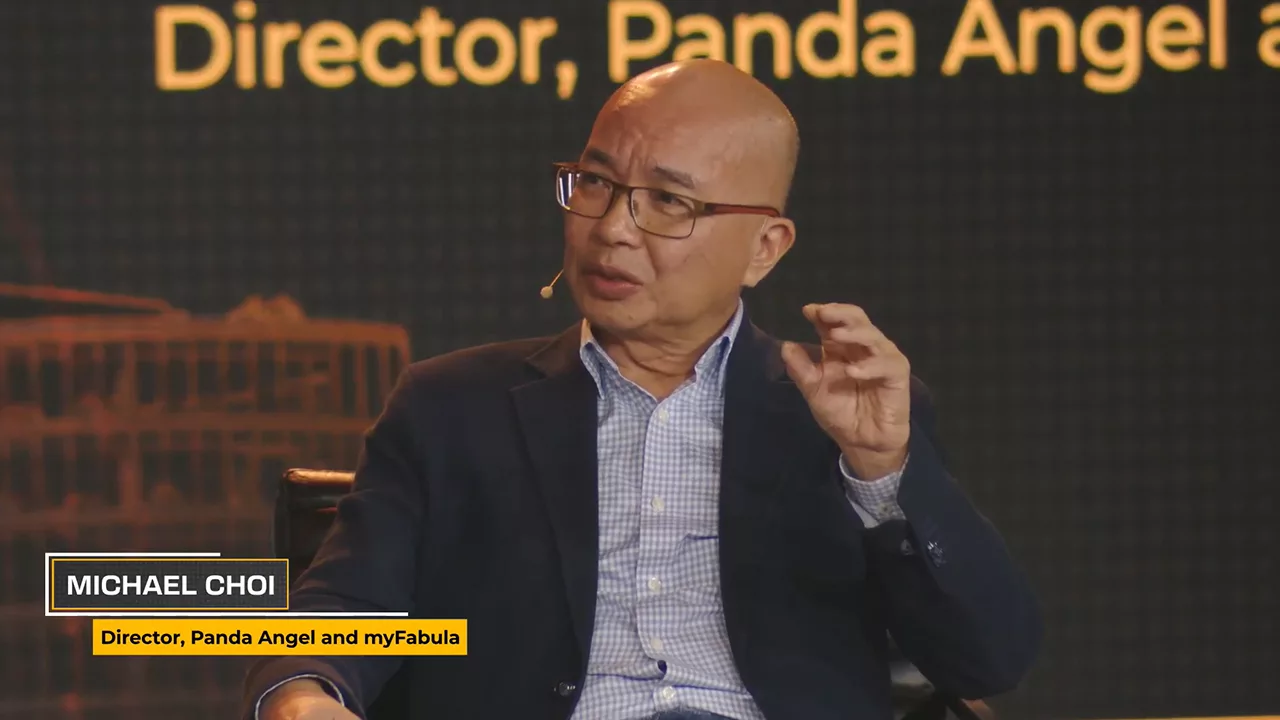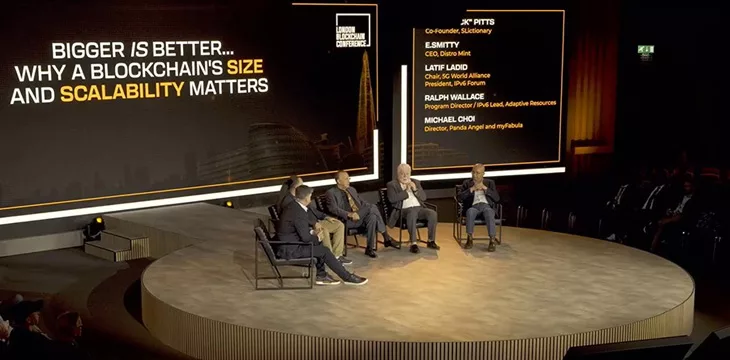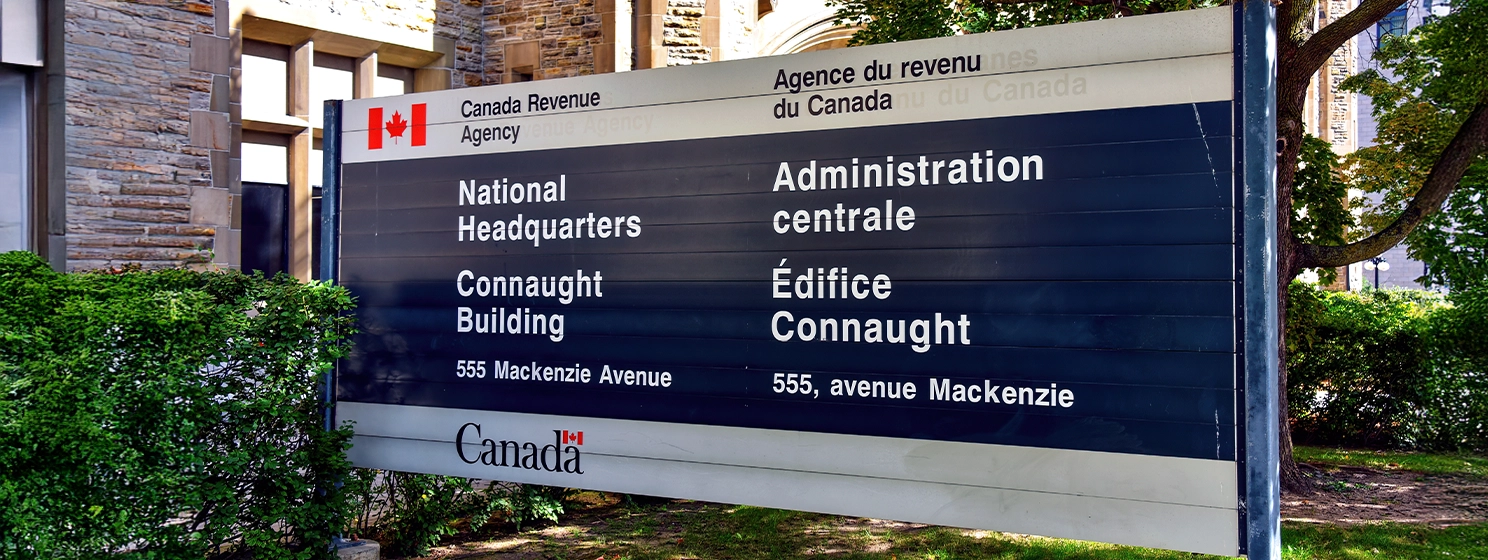|
Getting your Trinity Audio player ready...
|
On Day 1 of the London Blockchain Conference (LBC), attendees heard from industry experts about why size and scalability matter in blockchain technology.
Size matters, and ‘bigger is better,’ at least when it comes to blockchain technology.
The idea of ‘bigger is better’ is a key theme of LBC 2023, and as Day 1 continued to deliver on this mantra, with an expert panel of big brains extolling the virtues of scalability to a large crowd of attendees seated at the vast QEII Centre—size really does matter.
The conference center sits in the shadow of Westminster Abbey, the impressive sight of which conveniently reinforces this message while also serving as a complete contrast to the very future-focused discussion that got underway just before noon.

“The biggest challenge is to make blockchain the next revolution, as big as the previous ones,” said Ralph Wallace, Program Director & IPv6 Lead at Aptive Resources. He speaks from experience regarding size and scalability in tech projects, having worked on some intimidatingly sized projects, not least with the U.S. Internal Revenue Service.
Wallace spoke to the busy conference room about the exciting possibilities of Internet Protocol version 6 (IPv6) to allow for scalable peer to peer networks, which is where blockchain technology, particularly BSV blockchain, comes into the picture.
“Blockchain is the killer application to show the value of IPv6,” Wallace noted. He explained that you can get the best out of both technologies if you understand their symbiotic relationship: “If you don’t have IPv6, blockchain cannot perform as designed.”
The problem with the previous internet protocol IPv4, which is currently still the most widely used, is that it has a limited amount of addresses, so for P2P interactions, you often have to go through an intermediary. With IPv6, Wallace suggested, you can have true P2P without intermediaries, and there is enough network space for everyone to have an individual address or even multiple addresses.
Fellow panelist and IPv6 expert Latif Ladid, Chair of 5G World Alliance and Founder & President of IPv6 Forum (an organization for creating awareness about IPv6 deployment), also highlighted what he called the “scaling problem” that IPv4 has.
“The problem is a lack of address space, which is something IPv6 can address,” Ladid remarked.
More addresses would allow infinitely more P2P exchanges without intermediaries.
This is only possible due to the huge scalability of the BSV blockchain and its ability to handle massive amounts of transactions. This view was supported by Michael Choi, Director of Panda Angel and myFabula.
“Many people say size doesn’t matter [cue laughter from the crowd], but when it comes to the blockchain, this is not true. The ability to scale is critical,” he noted.

Choi suggested that, while there are plenty of other blockchains out there when it comes to scalability and ‘size,’ BSV blockchain was the only one that met all of his company’s needs.
Watch: Bringing Government and Enterprise onto the blockchain

 12-13-2025
12-13-2025 





